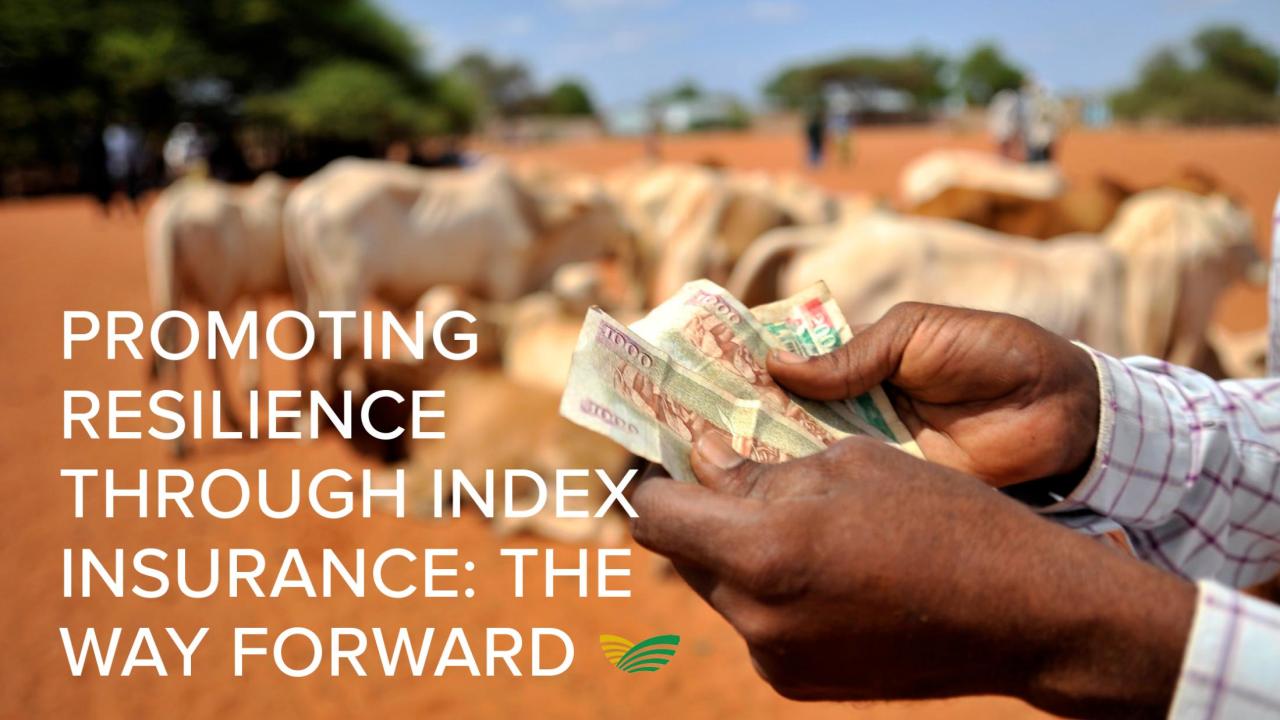
Seminar for USAID Describes the Way Forward in Promoting Resilience through Index Insurance
Within USAID headquarters in Washington, D.C., agency employees from the Bureau of Food Security, the Center for Resilience, the Africa Bureau and others packed into a conference room to participate in a discussion on the future of index insurance on April 20th, 2017.
This USAID-focused event was an opportunity to bring researchers and policy-makers into the same room to discuss index insurance and its function as a promising tool for building resilience among impoverished farmers around the world.
“We feel addressing farmers’ uninsured risk is truly central to the work of the U.S. Government’s Global Food Security Strategy,” said Saharah Moon Chapotin, deputy assistant administrator in USAID’s Bureau for Food Security.
The seminar, entitled “Promoting Resilience Through Index Insurance: The Way Forward” was organized by the Feed the Future Innovation Lab for Asset and Market Access. Moon Chapotin opened the session, and AMA Innovation Lab director Michael Carter, a UC Davis professor of agricultural and resource economics, and UC Berkeley professor Alain De Janvry led the main presentation. Center for Resilience director Greg Collins and USAID chief economist Louise Fox acted as discussants.
“We’ve learned a tremendous amount from all this research, but it is still a work in progress,” Carter said. “Looking forward, the chief challenge is to make sure index insurance products are of high quality, and that we can find ways to meld this insurance with other risk management strategies to really boost resilience in impoverished communities around the world.”
The AMA Innovation Lab is currently funding over 20 different research projects investigating how to bolster market access, reduce uncertainly and create a secure, self-reliant and prosperous future for struggling farmers and their families all over the world. Carter and De Janvry’s joint talk focused attention on the recent advances researchers have made in making index insurance a more accurate and effective risk management tool.
Based on these new impacts, Carter and De Janvry made policy recommendations that development organizations, such as USAID, should consider. Key policy takeaways from the seminar include:
- Invest in the development of high-quality insurance indices that meet safe minimum standards for quality.
- Support the use of smart subsidies that lower insurance costs and encourage uptake.
- Bundle index insurance with drought-tolerant agricultural technologies to cover more farmer risk.
- Create flexible structures for savings and credit to complement insurance.
